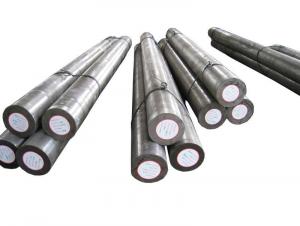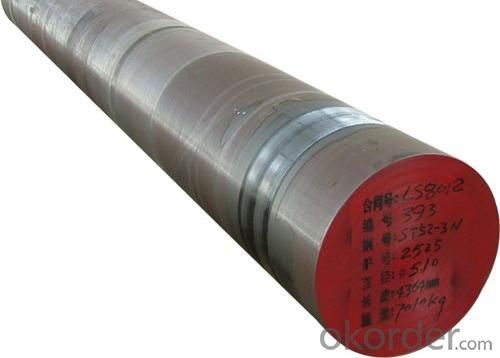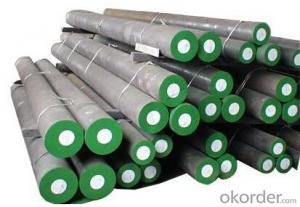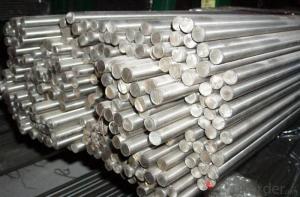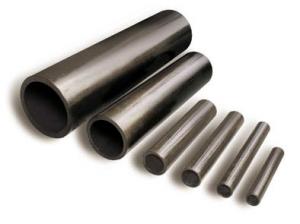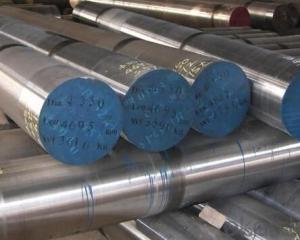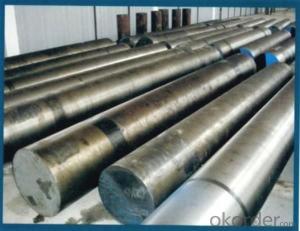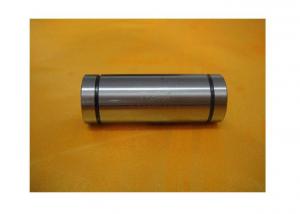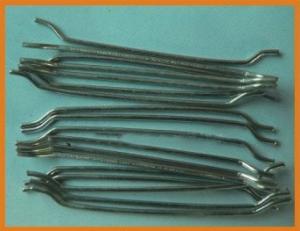High Quality Bearing Steel
- Loading Port:
- Guangzhou
- Payment Terms:
- TT or LC
- Min Order Qty:
- 25MT m.t.
- Supply Capability:
- 600000 Tons/Year m.t./month
OKorder Service Pledge
OKorder Financial Service
You Might Also Like
Specifications of High Quality Bearing Steel
|
Grade |
bearing steel EN-31 |
|
Dimensions |
Diameter: 20-280mm Length: 2000-5800mm |
|
Shape |
Round Bar |
|
Type |
High chromium bearing steel |
|
HBS |
<220 |
|
Standard |
AISI |
|
Technique |
Hot Rolled |
Usage and Applications of High Quality Bearing Steel
High Quality Bearing steel is used for manufacturing ball, roller bearing steel and rings. Bearing in work is under great pressure and friction, so have high demands bearing steel and hardness and resistance, and high elastic limit.
Bearing steels are used for ball and roller bearing applications and are comprised of low carbon steels and high carbon through harden able steel.
For example, bearing ring, steel rolling mill, machinery, 100Cr6 bearing steel ball is widely used in high-speed and low-noise bearing, bicycle, motorcycle, automobile, bags electronically.
Packaging & Delivery of High Quality Bearing Steel
Packaging Detail: Standard seaworthy packing or as customer required.
Delivery Detail: 45 days
Trade terms: FOB, CFR, CIF
MOQ: 25 tons or at customer's demands
We have some characteristics as below:
1. High quality
2. Competitive price
3. On-time delivery
4. Excellent after-sales service
5. Large stocks
Chemical Composition of High Quality Bearing Steel
|
C |
S |
P |
Si |
Mn |
|
0.95-1.05 |
≤0.025 |
≤0.025 |
0.15-0.35 |
0.25-0.45 |
|
Cr |
Mo |
Ni |
Cu |
Ni+Cu |
|
1.40-1.65 |
≤0.10 |
≤0.30 |
≤0.25 |
≤0.50 |
Note of High Quality Bearing Steel
1. According to national standard (GB) for our products, if not, supply according to national standards (GB) or agreement.
2. We can not only provide electric furnace +LF+VD and electros lag re-melting (ESR) steel forging materials, but also forging products of piece, bar, etc.
3. Our company is equipped with roll equipment and can provide our customers with roll billets or finished.
4. The materials that we purchase are all accord with International General Standard; you could check it out on the Material Quality Sheet.
5. We are the creator of the “seven-step inspect method” in China.
6. The technical workers we employed are the ones with many years’ working experience, who know the technology procedures very well.
7. We will strictly inspect our production that we sold according to the customer’s request.
8. Our steel reaches international quality standards. Besides, our company is equipped with large-sized vertical saw machines, horizontal saw machines, milling machines, grinding machines and other advanced equipment. All our products are carried out hardness tests, such as the ultrasonic flaw detection before shipment. Therefore, there is no quality problem. With more competitive price than other suppliers, our steel has good sales in the markets of North America, South America, East Europe, Southeast Asia, Africa, Oceania, the Middle East, East Asia and West Europe.
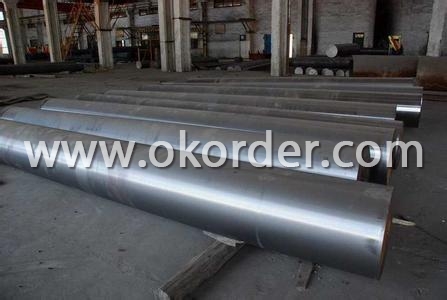
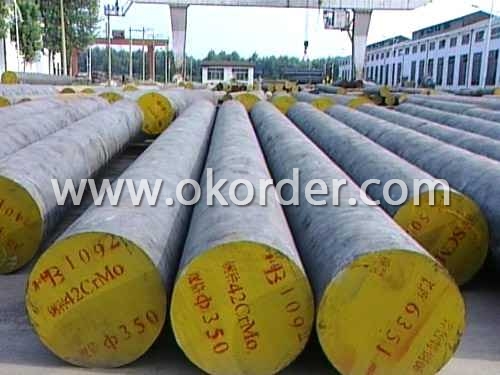
- Q: What are the key properties of special steel?
- Special steel has several key properties that set it apart from regular steel. These include high strength, excellent corrosion resistance, good wear resistance, and superior heat resistance. Special steel is also characterized by its ability to withstand extreme temperatures and pressure, making it suitable for critical applications in industries such as aerospace, automotive, and construction. Additionally, special steel can be easily machined and welded, allowing for greater versatility in manufacturing processes.
- Q: What are the limitations of using special steel in electrical applications?
- One limitation of using special steel in electrical applications is its relatively high cost compared to other materials such as copper or aluminum. Special steel also tends to be heavier, which can make electrical components or devices bulkier. Additionally, steel has lower electrical conductivity compared to copper, leading to higher resistance and potential energy losses in electrical circuits. Finally, steel is more susceptible to corrosion, which can impact the durability and longevity of electrical equipment if not adequately protected.
- Q: Can special steel be used in the textile industry?
- Yes, special steel can be used in the textile industry. Special steel alloys, such as stainless steel, can be used for textile machinery components like needles, pins, and various parts of looms. These steel alloys provide excellent strength, corrosion resistance, and durability, making them suitable for demanding textile manufacturing processes.
- Q: What are the different heat treatment processes used in special steel?
- Some of the different heat treatment processes used in special steel include annealing, normalizing, tempering, quenching, and case hardening.
- Q: Can special steel be used in railway applications?
- Yes, special steel can be used in railway applications. Special steel, such as high-strength steel or corrosion-resistant steel, can offer enhanced durability, strength, and resistance to wear and tear in railway components, tracks, and infrastructure. This allows for safer and more efficient railway operations.
- Q: How is free-cutting steel used in the manufacturing of screws and bolts?
- Free-cutting steel is commonly used in the manufacturing of screws and bolts due to its excellent machinability. The steel's composition includes additives such as sulfur, lead, or bismuth, which act as lubricants during the machining process, making it easier to cut and shape the material. This results in a faster and more efficient production of screws and bolts, reducing manufacturing time and costs.
- Q: How is maraging steel used in the production of rocket and missile components?
- Maraging steel is used in the production of rocket and missile components due to its exceptional strength, toughness, and resistance to heat and corrosion. Its unique properties make it ideal for critical parts like rocket casings, engine components, and missile guidance systems, where high performance and reliability are paramount. The steel's ability to handle extreme conditions, such as high pressures and temperatures, ensures that these components can withstand the rigorous demands of aerospace applications.
- Q: Can special steel be used in the aerospace defense industry?
- Yes, special steel can be used in the aerospace defense industry. It is commonly used for manufacturing various components and structures in aircraft and defense systems due to its high strength, durability, and resistance to extreme temperatures and corrosion.
- Q: What are the different welding techniques for special steel?
- There are several different welding techniques used for special steel, including shielded metal arc welding (SMAW), gas tungsten arc welding (GTAW), gas metal arc welding (GMAW), and submerged arc welding (SAW). Each technique offers unique advantages and is chosen based on factors such as the type of special steel being welded, the desired weld quality, and the specific requirements of the project.
- Q: Is special steel suitable for marine applications?
- Yes, special steel is suitable for marine applications. Special steel alloys, such as stainless steel, are highly resistant to corrosion from seawater and provide excellent strength and durability in harsh marine environments. They are widely used in the construction of ships, offshore platforms, and other marine structures due to their ability to withstand the corrosive effects of saltwater and maintain structural integrity over extended periods.
1. Manufacturer Overview
| Location | Guangdong, China |
| Year Established | 2005 |
| Annual Output Value | Above US$ 100 Million |
| Main Markets | korea, India, Malaysia, Brazil, Germany, Belgium, Middle East |
| Company Certifications |
2. Manufacturer Certificates
| a) Certification Name | |
| Range | |
| Reference | |
| Validity Period |
3. Manufacturer Capability
| a) Trade Capacity | |
| Nearest Port | Guangzhou |
| Export Percentage | 50%-80% |
| No.of Employees in Trade Department | 21-100 People |
| Language Spoken: | English; Chinese |
| b) Factory Information | |
| Factory Size: | 23,000 square meters |
| No. of Production Lines | 1 |
| Contract Manufacturing | OEM servise offered |
| Product Price Range | high; average |
Send your message to us
High Quality Bearing Steel
- Loading Port:
- Guangzhou
- Payment Terms:
- TT or LC
- Min Order Qty:
- 25MT m.t.
- Supply Capability:
- 600000 Tons/Year m.t./month
OKorder Service Pledge
OKorder Financial Service
Similar products
Hot products
Hot Searches
Related keywords


